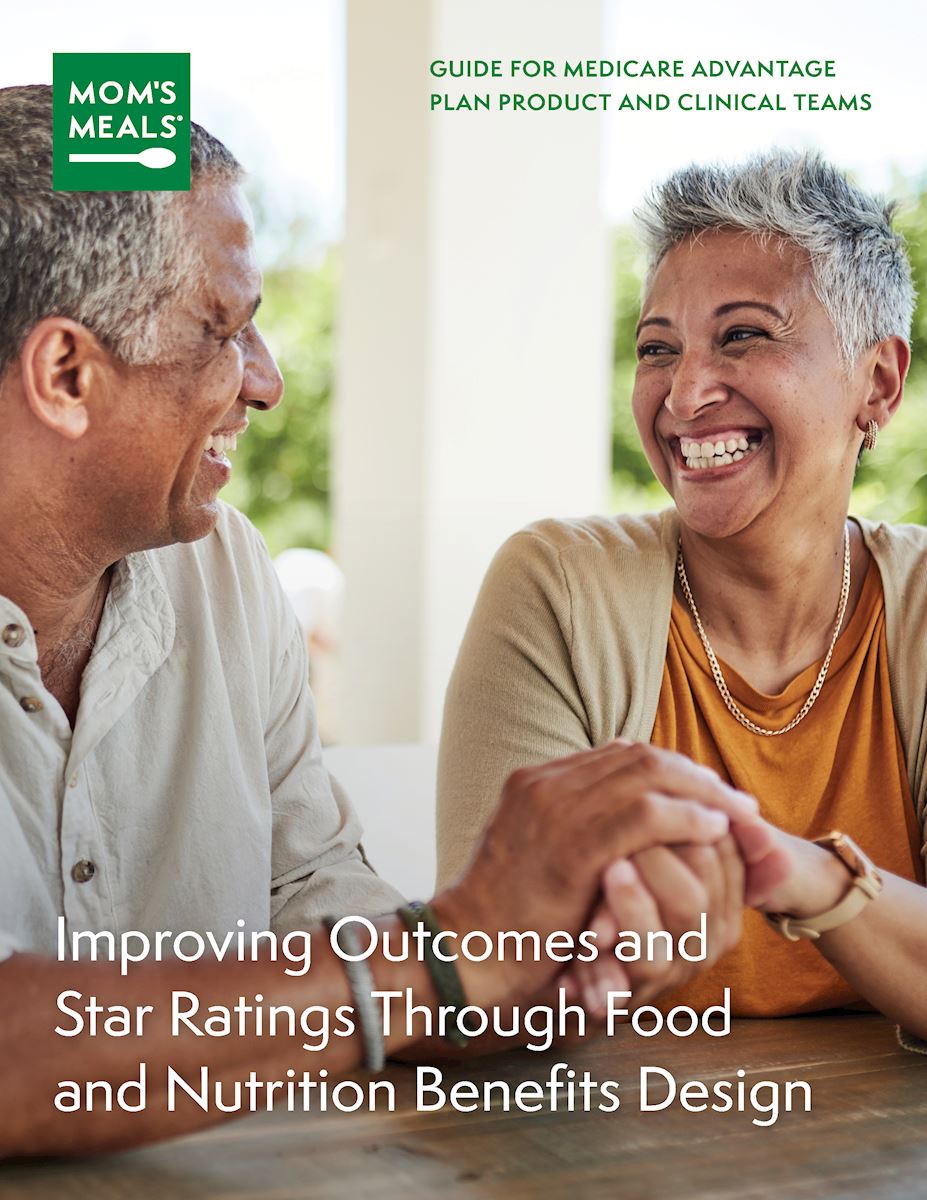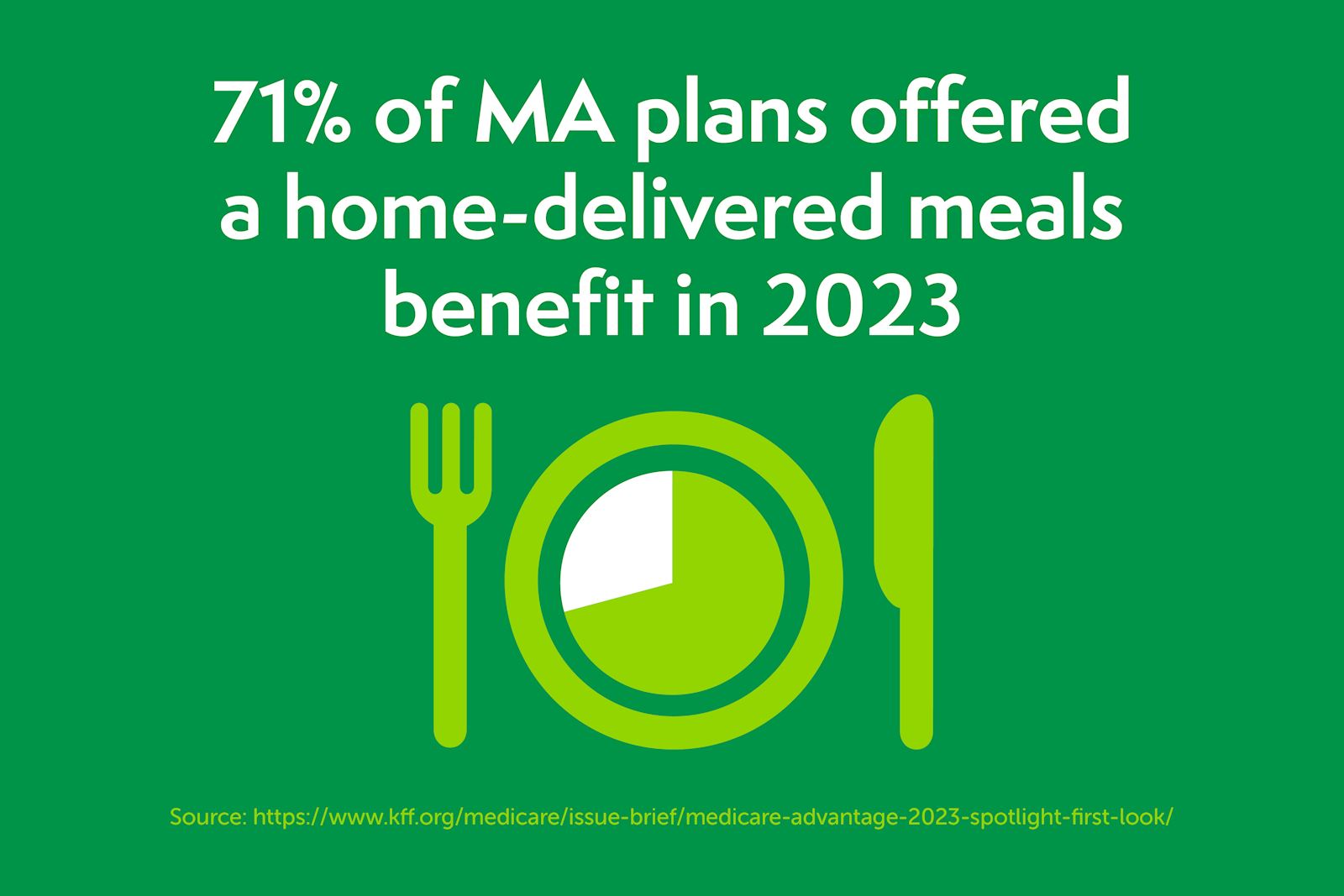Home-delivered meals are proven to be effective at helping older Americans, the chronically ill and recently discharged patients stay healthier.
A study published in the Journal of Primary Care and Community Health found that members who receive home-delivered, medically tailored meals have:
- 50% fewer hospital readmissions
- 37% shorter lengths of stay
- 31% lower total cost of care
But how do health care companies, community groups, government agencies — even family members — determine who could benefit from home-delivered meals? And how can they account for situational issues like lack of transportation or living near the poverty line that impact one’s ability to access healthy food?
There are several approaches — from simple to high tech — that can help.
Just ask
Often the easiest and fastest approach is to talk with an individual to assess their needs. Many health care organizations use an assessment tool or a conversation to determine need. Key questions to ask include:
- Are you eating nutritious meals each day?
- Are you homebound?
- Have you recently lost or gained a significant amount of weight?
Try tech
Centers for Medicare & Medicaid Services (CMS) screening tool
The Accountable Health Communities Health-Related Social Needs Screening Tool measures social determinants of health (SDOH) which are the economic, social and environmental issues that impact a person’s access to support, nutritious food, stable employment and housing.
Use data and analytics
With the rise of data and analytics, health care organizations have powerful metrics at hand to pinpoint patients and members who need nutritional support or who are at higher risk of needing it in the near future.
Using modeling and analytics, a company can combine data from various sources including claims, marketing and the census to create a snapshot of a person’s life. Using algorithms, SDOH can be factored in. The result is a more complete picture of a person’s circumstance that can indicate whether they are at risk of needing non-medical support such as home-delivered meals that can help the individual stay healthy and out of the hospital.
For example, if an individual has a chronic medical condition, lives in a food desert, is near the poverty level, and doesn’t have a car, those combined factors could indicate that person would benefit from medically tailored, home-delivered meals to manage their chronic disease and support overall better health.
Evaluate the situation
Certain situations are red flags for people needing nutritional support via home-delivered meals. Some common ones include:
- Older people who can’t prepare nutritious meals for themselves due to physical limitations or social circumstances like living in a “food desert.”
- Patients recently discharged from the hospital need good nutrition to heal. The limitations of recovery — like not having the mobility or energy to cook — can reduce access to nutritious meals. That’s why home-delivered meals are so helpful. In fact, one study shows that patients receiving post-discharge meals had a 38 percent reduction in 30-day readmissions.
- People with chronic conditions may be preparing or buying their own meals, but those meals may not be nutritionally appropriate considering their medical condition. Many chronic conditions, particularly diabetes and hypertension, can be improved and managed through quality nutrition.
Mom's Meals® can help
Access to nutritious food is a central factor in SDOH. Mom’s Meals is committed to addressing SODH and health equity through our medically tailored, home-delivered meals. Some individuals may qualify for our meals at little or no cost to them.

Medicare Advantage health plans: Discover how to maximize your MA plan design by incorporating medically tailored, home-delivered meals benefits with our free, Guide for Medicare Advantage Plan Product and Clinical Teams: Improving Outcomes and Star Ratings Through Food and Nutrition Benefits Design.



